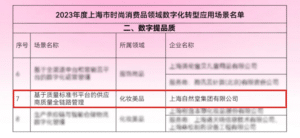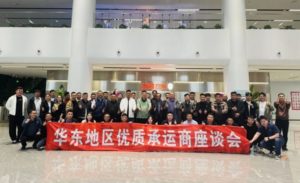China’s real estate stocks rebounded strongly, observers: obvious speculation will not last
[ad_1]
Shares of Chinese property developers staged a collective rebound on Wednesday (September 6), the largest in more than a month, driven by recent support measures rolled out by Chinese authorities.
The Bloomberg Index, which tracks Chinese builders, rose nearly 10% on Wednesday, the most in more than a month. Big developers with undervalued and heavily indebted stocks saw the biggest gains.
Shares of Tianjin-based Sunac China Holdings Ltd. soared 68% amid surging trading volume. Evergrande, China’s largest property developer, which has been teetering on the brink of bankruptcy, closed up 83 percent, its biggest gain since it went public in 2009.
The debt problem in China’s real estate sector has worsened significantly in the last month. Chinese authorities have rolled out a series of long-awaited measures in the past two weeks to prevent its slide from triggering a wider financial crisis, including reducing down payment requirements for home purchases and easing mortgage standards. The China Securities Times even proposed that the government should remove all restrictions on home purchases in all regions, not just first- and second-tier cities.
The Securities Times article said that the current supply and demand relationship in the real estate market has undergone major changes, and it is out of date to continue to maintain those restrictive home purchase policies promulgated to curb market speculation.
The conclusion of the article is: Now there is an “urgent” need for the government to increase policy support to promote housing sales and release the demand suppressed by restrictive policies.
The restrictions on home purchases issued by the authorities were introduced in order to implement Xi Jinping’s directive that “housing should not be speculated.” If all restrictions on home purchases are lifted, it will undoubtedly damage Xi Jinping’s image. Therefore, observers say, Chinese state media’s calls to lift all restrictions on home purchases show that the problems in China’s real estate market have reached a stage where the top authorities have no time to save face.
U.S. financial media Bloomberg quoted Ng Xin Yao, manager of Aberdeen Asia stock investment, as saying, “Some hedge funds estimate (the Chinese authorities) will introduce more stimulus measures,” “those problematic developers are undoubtedly the first choice for this bet.” Target”.
Shares in big Shenzhen-based property developers Country Garden and Logan Group also rose 26 percent and 28 percent, respectively. Country Garden held a shareholder meeting on Tuesday and narrowly approved a plan to roll over privately placed bonds, avoiding a debt default. This is the second time that Country Garden has come close to defaulting on the contract recently.
Since the news that Evergrande Group was in debt of more than 2 trillion yuan and 300 billion U.S. dollars broke out in 2021, China’s real estate industry has been in a downturn. The debt problems of one large developer after another have been continuously exposed, housing sales have dropped sharply, and wave after wave of unfinished buildings and supply cuts have evolved into a major social and economic problem in China.
Although people still have doubts about the level of policy support currently being provided by the government, the rebound in real estate stocks at least shows that some investors still have some hope in the government’s efforts. Home sales in first-tier cities such as Beijing and Shanghai all increased over the weekend, and market sentiment improved.
However, some market observers pointed out that this market rally is obviously speculative and will not last. Its characteristic is that the broader market has fallen, and the rebound is limited to real estate developers with liquidity problems and poor fundamentals.
The Shanghai and Shenzhen 300 Index fell 0.2% on the day, and the Hong Kong Hang Seng Index fell slightly under the drag of the health care sector and real company stocks.
[ad_2]
Source link







